
Ross Godfrey and Skye Edwards: “It would be impossible for us to not sound like Morcheeba.”
Singer Skye Edwards and multi-instrumentalist Ross Godfrey of much-loved, trip hop lounge act Morcheeba, return as a family-supported acoustic duo
Reaching the heights of their fame in the late 90s, the British group Morcheeba were known for the sweet vocals of Skye Edwards mixed with the laid-back mix of fusion, funk and blues produced by brothers Paul and Ross Godfrey. The trio made eight studio albums since 1995, with Big Calm and Fragments Of Freedom reaching platinum sales, taking their particular brand of chilled, trip hop to the mainstream.
In 2003, Skye left the band and went on to release four solo albums, but after a successful Morcheeba reunion in 2012, she and Ross began making music together again. The new songs marked a different direction and so the pair formed Skye Ross, initially as an acoustic duo, but were ultimately joined by Skye’s son Jaega on drums, her husband Steve on bass and Ross’s wife Amanda on backing vocals.
Shortly before releasing the eponymous Skye Ross album, we caught up with the pair to reflect on the 20 years since the release of Morcheeba’s debut and look to the future…
It’s a real family affair with Skye Ross. What’s it like having your son Jaega joining you?
Skye: “Yeah, he’s 20 years old now. I was pregnant with him when we recorded our first Morcheeba album – the ages of my kids remind me of when each record came out and what happened along the way. He’s been playing drums with us for the last two years. When we came to make this Skye Ross record, it was originally going to be more acoustic, but then as got more into it, we thought we’d put live drums on it. I guess that’s the difference between Skye Ross and Morcheeba: it’s not so programmed, less hip-hop – there’s no rapping on this record – and Ross is producing it and I’m writing the lyrics. Whereas Paul was the lyricist and the producer for Morcheeba.”
Were you involved with the lyric writing at all in Morcheeba, or was that completely Paul’s domain?
S: “Paul was the main lyricist and I was the melody maker, and then we would suggest story ideas.”
Listening back to Blood Like Lemonade, we’d forgotten how sinister those lyrics were!
S: “That’s always been a thread with Paul’s lyrics – they’ve always been dark, right from the very beginning. On Who Can You Trust, there’s a line on there that says: ‘I’d love to cut your throat, you’ll never sing a note.’ But because I don’t have a gravelly, Leonard Cohen-sounding voice, I guess they kind of tune out to the sinister side of the lyrics.”
How about your own approach to lyrics?
S: “I’ve got four solo albums, so I’d been writing lyrics for them and before that I wrote poetry and stuff. So the words came quite easy for a lot of the songs for this Skye Ross record. The first song that we wrote, Ross sent through something acoustically – it was for Clear My Mind – and I sent the lyrics over to Ross, he really liked them and we started taking it from there.”
Ross, has your role changed at all between the two bands?
Ross: “No, it’s pretty similar. I normally write all the music – come up with some chords at the beginning and maybe a riff or two, that can sometimes inspire the melody. Then I kind of hand that over and let Skye write whatever she wants to, over the top. Then, once we’ve got a basic musical arrangement, lyrics and melody, we kind of tweak it between us and try to finely polish it, until we’re both happy with how it goes. The recording process is still very much a part of the writing process, because once you start recording, and you come up with some parts or a riff, it can change how the song goes. So it’s a constant process, chiseling away until you’ve got something that you’re happy with.”
How did you get into writing and producing with your brother, Paul?
R: “He used to play drums in a band that I was in. He initially was a scratch DJ and a drummer, I played guitar and a bit of keyboards as well, so I always wrote the music and Paul got into lyrics more because he was into hip-hop, so lyrics came quite naturally to him. But I’d say my role hasn’t really changed that much between the transition from Morcheeba to Skye Ross.”
S: “Apart from the fact you’ve produced it all!”
R: “Yeah, but I used to co-produce six out the eight Morcheeba records. On this record, it was just me producing, but I’ve done so many I could do it in my sleep, if I had to! I tried to make things a bit different on this record – we wanted to make it more live and organic, and have the feel of a live band. We didn’t want it to sound like a live record, but we wanted it to feel alive. Sometimes I get bored with plodding, programmed beats; it feels like there’s no energy in the music. So we wanted to have a drummer, with fills and excitement that interact with the other musicians. When I’m playing guitar, it helps if the drummer is doing things that spark inspiration for me to play along to.”
It’s interesting that, although you’ve gone with a different approach, there’s still the essence of Morcheeba throughout.
R: “Friends always say that to me when I play them a bit of music I’ve written, or that Skye’s done some vocals on. They say, ‘God that sounds like Morcheeba,’ and it’s like, what do you expect?! That’s what it sounds like when we make music – I tend to write in moody, minor keys and Skye’s voice is obviously very recognisable. It would be impossible for us to not sound like Morcheeba.”
Reflecting on Big Calm, what are your feelings about that album and that moment when everything took off? And did you have any idea it was going to be so successful?
S: “I wasn’t quite aware of it, whilst we were in it, because we were constantly touring. We’d be like three months in America and then a week home doing promo, and then another three months around Europe, going to every territory and tiny little town. So I wasn’t aware of the whole trip-hop movement that we were part of, until years and years later. Even when we broke up in 2003 and after that, someone was saying to me, ‘Whenever there was a compilation with Morcheeba on it, that meant it was a cool album.’ And I was like, ‘Really? We were cool!?’ So it’s nice to look back and think, yeah we were part of that whole movement.”

Skye Ross: “It doesn’t really matter about production or what genre it’s going to fit into. It’s just about whether it’s a great song or not.”
R: “I think when we made the album, we knew it was very good because we actually quite liked listening to it. I lived in a shared flat and brought home a copy, and I’d left it in the front room, and whenever I came back they all used to be listening to it. And they weren’t doing it because I lived there, it was because they actually liked the record. Everyone I gave it to really liked it, and I had a friend who worked in a record shop in Camden and it was their biggest selling record that year. So there was a lot of genuine enthusiasm for the record and I remember thinking that the songs we wrote were very good and varied as well – there was reggae and country, an acid rock-inspired song – there were lots of different things on there.
“I do remember thinking at the time that it was a special record, but I didn’t think we’d still be talking about it 20 years later! Sometimes when you’re writing a song, you come up with a part that you can imagine playing at a festival with 10,000 people singing along, and that doesn’t happen to every song that you write, but on Big Calm there were a lot of songs where I thought that. Flash to six months after the release: we were playing Glastonbury and 30,000 people were singing along to Part Of The Process – it was just a magic time. I definitely knew something magical was happening, but like Skye said, we were so busy and spent so much time out of the UK that we didn’t realise what was going on. We spent more time in airports and truck stops!”
Thinking back to the writing of that album, was it just another record that you put together in the studio, or on the road, or was there anything special about how it was made?
R: “I remember we’d just finished Who Can You Trust and were about to go on tour, and we wanted to do some writing before we became too tired. I had a few bits of music and Paul and I stayed up one night and he wrote quite a lot of the lyrics in one go. We did it very fast and presented that material to Skye, and she came up with the melodies. I specifically remember giving her the music to The Sea and most of the lyrics, and she came up with the chorus melody. Then it was the same with Fear And Love: it was just a few basic acoustic chords, lyrics and then we came up with the orchestral parts.
“We’d never worked with a string section before, and it was a bit of a luxury – we had a bit of a budget and could afford to bring them in. Like I said before, the writing process changes when you have different instrumentation, because you suddenly start thinking of different ways you can make the song come alive. I think with the strings on Big Calm, even though they’re only on three or four songs, they really brought life to the record – they made it bigger and more epic in the scope. In some sort of way, they made it more classy, and made us more acceptable. Before, we made music in the bedroom of a flat and that was a very lo-fi experience, and to suddenly sound high-end and like an easy listening, lounge band was quite an achievement.”
Skye, it’s interesting to hear that you wrote melodies to fit the lyrics, which is an unusual way of working. Did you find that approach easier?
S: “Yeah, at the time it was easy because I remember at the time not really thinking about it and just humming along to the words that Paul had. It was usually just the first melody that came out of my head.”
Fast forward to your new album, can you tell us where you were when the songwriting process started?
S: “We were both in our homes really. Ross would email me, and the first song we came up with was Clear My Mind. Well, Ross wrote that. When did you come up with the chords for that, Ross?”
R: “About a few hours before I sent it to you!”
S: “I think I sent you the melody, which you really liked. I think the words came at the same time, but I remember having a sleepless night and in the morning emailing you and saying, ‘I haven’t slept at all, but what do you think of these words?’”
R: “I absolutely loved it and thought it was magical, and in fact we didn’t do any more recording on it – we just re-recorded the vocals and that was it.
“As far as where we were when we wrote the songs, things just come to you. Most of the time I’m at home, jamming in the studio, but things do pop into your head. For some reason, I get them at the most inconvenient moments, like at a traffic light or walking through a tunnel, and I have to sing a really bad guitar riff into my iPhone. Then when I get home, I listen to it and think, God I must’ve been drunk! Then I finally remember the riff I was trying to sing, and then you work it out from there. But sometimes things just pop into your head, especially just before you’re about to fall asleep, which is very annoying because you have to get up and go downstairs and plug a guitar in, and everything. But most of the time, the ideas are worked upon afterwards, just in the studio.”
Going back to the family becoming part of the band, did you audition other musicians or was it clear from the start that they’d be involved?
R: “It was just convenient really! Those guys play in the band, so they were the people who were around. I never wanted to get any other musicians involved because, once we start making music, it just happens and we nearly play everything ourselves. Skye’s son, Jaega is a great drummer and if we wanted live drums he was the man we were going to ask, and the same with Steve, Skye’s husband, playing the bass. Then we had Richard Milner playing keyboards, and I can play but he’s a lot better than me, so when we wanted some really good Hammond organ, we just asked him to do it. He lives pretty close by, so he’d just come to my house and play my Hammond. Then one day, I was doing some editing of Hold On and my wife came in singing the melody, so I set up a mic and recorded her singing a harmony. I sent it to Skye and asked her and she loved it.”
S: “I was like, ‘Yeah, get her to do more!’”
R: “So it’s whatever comes naturally. At the moment, it’s fun doing it ourselves because we’ve been doing music a long time together and this is the first time we’ve worked as a duo, so we’ve just been enjoying that, really.”
Have either of you been working with any other artists on different projects?
S: “For my solo albums, I’ve worked with different producers. Pat Leonard and Daniel Lanois for my first one and then Ivor Guest on my second solo record. Steve Fitzmaurice on the fourth one, and Robert Logan who worked with us on some of the Skye Ross tracks.”
You say in the biog that this doesn’t signify the end of Morcheeba, but are you thinking about the next Skye Ross album and continuing as you are?
R: “I think so. We’re really enjoying this project. I can’t see me working with my brother again. The last Morcheeba record was really hard work and I think it kind of broke down, really. He wants to do something completely different to me. It’s the classic ‘musical differences’, I think. Paul likes electro and upbeat things, and I’m more into organic, downtempo, psychedelic guitar things. So I should imagine that pretty much is the end of Morcheeba – I can’t see that we’re ever going to make another record, as a three-piece anyway.
“So this project is what we’re having fun with at the moment and we’ve already written a couple of tracks for the next record, and we’re constantly keeping our ears open for new ideas. But most of the time, when we make a record, the thing that really lives through it is just great songs. When we come up with a great song, it doesn’t really matter about production or what genre it’s going to fit into. It’s just about whether it’s a great song or not.”
Interview: Aaron Slater
Skye Ross’ eponymous album is out now on Fly Agaric Records/Cooking Vinyl. To find out more, take a look at: skyeross.uk




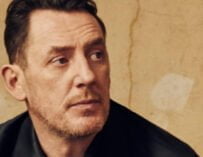
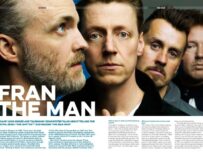
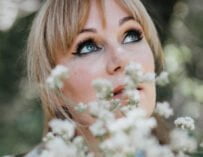
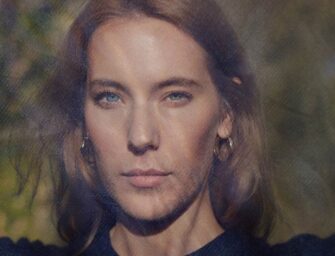
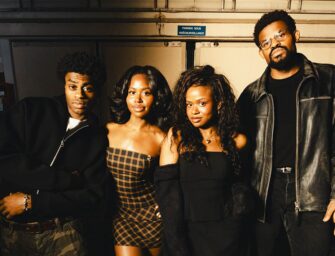
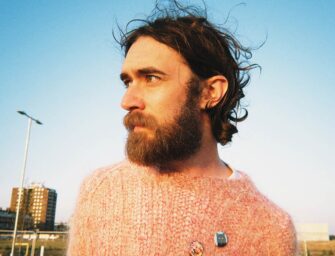

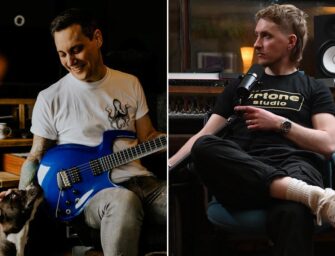






















Related Articles